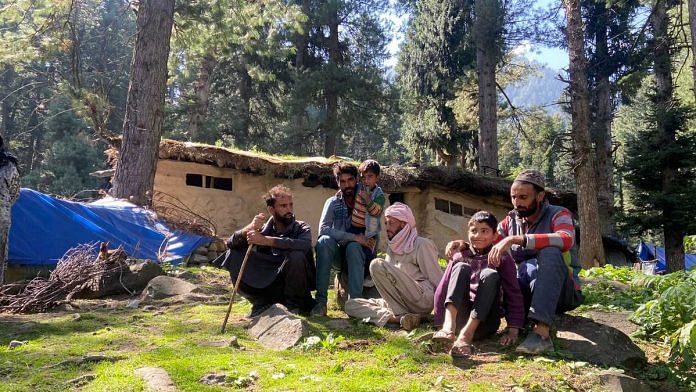Baramulla/Anantnag: Sabrina, 14, rummages through a pile of soiled clothes in a dark corner of her house. She gives up after a while, runs over to her friend next door, and whispers in her ear. Both girls then hurry to the adjacent jungle, where they forage for pieces of cloth discarded by Kashmiri women from nearby villages. They find plenty — enough to last Sabrina for this month’s menstrual cycle.
“Go lie down now so that you don’t feel the urge to relieve yourself,” Sabrina’s friend advises her. Using the ‘toilet’ means walking for 30 minutes in the jungle to an open area away from the village — bothersome at the best of times, and more so while she’s on her period.
Just a few meters away, Mohammad Raja Rafiq sifts through pieces of wood, preparing to light a fire since it is getting dark. His 10-year-old son had fetched the sticks from the forest earlier in the day, one of his daily chores.
For the 400 or so Gujjars living in Mamal area of Jammu & Kashmir’s Pahalgam — a 15-minute uphill walk on a rocky, non-motorable road — there are few basic conveniences. There are no toilets, no drinking water, and no electricity in their thatched mud hutments.
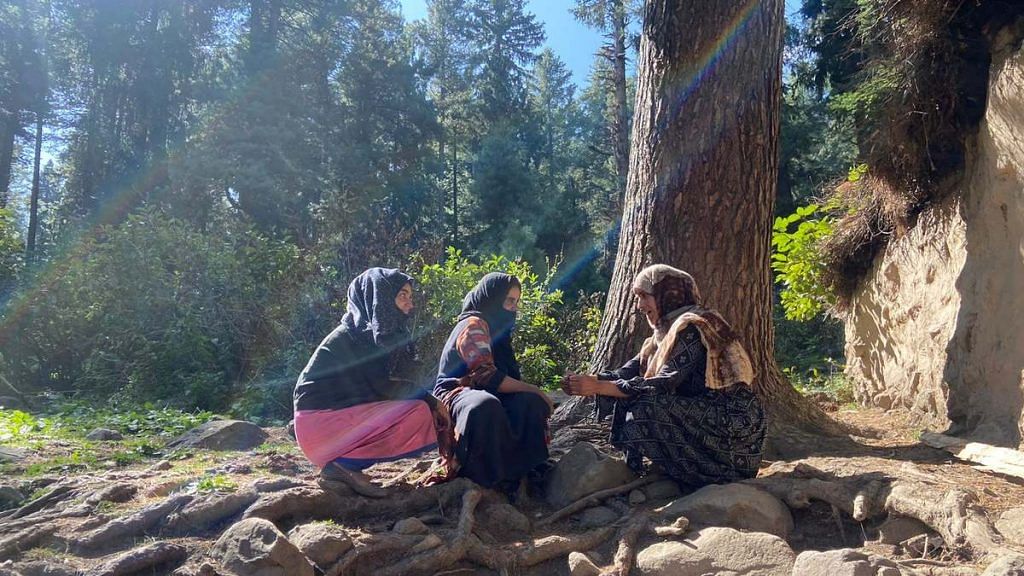
The children do not go to school as it is far and the Tata Sumo that could ferry them charges Rs 40 per ride, which they cannot afford. A mobile teacher, appointed by the government to teach here, has not shown up in the last six months.
The situation is similar in other parts of Pahalgam. Located in Anantnag district, it has a considerable population of Gujjars, a Scheduled Tribes (ST) community.
Now, many here are worried that development will take even longer to reach them.
They believe the Modi government has set in motion a zero-sum game by announcing reservations for the Pahari community.
When Home Minister Amit Shah announced the move during his J&K visit last week, the Paharis were jubilant that they might finally get ST status, which was granted to the Gujjar and Bakarwal communities more than three decades ago.
All three non-Kashmiri-speaking communities comprise Hindus as well as Muslims, and are concentrated in the Pir Panjal region, besides Anantnag and Baramulla districts.
While Paharis say reservations are “necessary” and will give them the same opportunities as the Gujjars and Bakarwals, sections of the latter two communities are convinced that they will end up being short-changed, even though Shah expressly said that this will not be the case.
Many also allege that the move is politically motivated, given that J&K elections are tentatively expected to be held early next year.
Also read: Promised ST status by Shah, Paharis could be kingmakers when J&K goes to polls
‘Paharis will eat into our share’
Gujjars across social classes believe that they will be the losers if reservation is implemented for Paharis.
While the more upwardly mobile members of the Gujjar community — the college students, government job-holders, local leaders — think reservation for Paharis will “dilute our share of opportunities”, those that live in poverty in remote areas feel they will be pushed even further backwards.
“We got ST status because we have been socially deprived and oppressed for years. [Reservation] was to give us representation in education and jobs so that we can break out from that life,” says Mohammad Yusuf Gorsi, chairman of the Anantnag District Development Council, a local governing body that was created after the Union government amended Jammu & Kashmir’s Panchayati Raj Act in 2020.
According to Gorsi, Paharis have not faced the same challenges that Gujjars have.
“Paharis are the elite, who have access to all resources, barring a few who live in remote areas. All we say is, give reservations upon analysis of who requires it. We do not have a problem if they get reservations, we are just worried that they will eat into our share,” he says.
For others in the community, like Rafiq, just meeting basic minimum needs is a struggle. For them, reservations in education institutes and jobs are secondary.
“Our priority are water, electricity, and a permanent home. Only after that can we think of education or jobs. I belong to the ST community but I don’t even get what I am entitled to. Look at the conditions we live in. This move will not let what is ours, reach us,” Rafiq says.
He adds: “These reservations benefit those who already have a basic minimum to sustain themselves. This move will further alienate us.”
Rafiq’s neighbour Aisha Bano, 50, argues a similar point.
“We have no food to eat, we drink sewage water, our children go for mazdoori (manual labour) because we barely make anything to sustain ourselves. Sometimes we get some benefits for being STs…if they dilute this as well, what will be left with?”
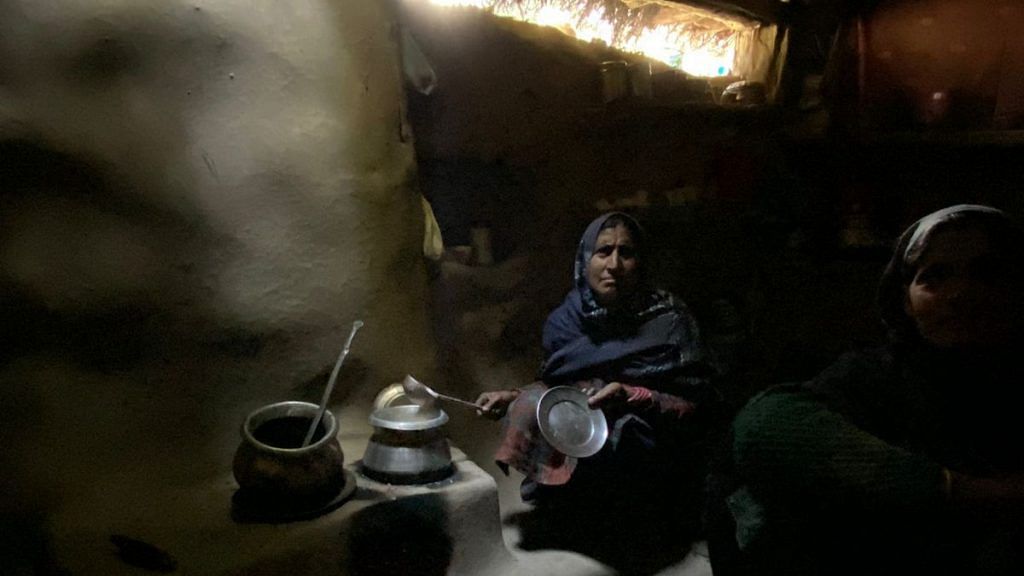
According to Rafiq, the government’s announcement is just for political mileage and votes.
“This government said that they will implement the Forest Rights Act of 2006, which says that we will be allowed to make a permanent house on the land we have been living on, but for the past one year, nothing has happened on the ground. They have just brought this Pahari issue up as they would require their support in these elections to secure seats,” he says.
Welfare for Paharis or ‘political gimmick’?
If the Paharis long-fought-for demand of reservation is implemented, it will be the first time a linguistic group will get quota benefits in India. So far, though, it is still unclear exactly how this reservation will be introduced.
In his speech last week, Amit Shah mentioned that reservations for Paharis will be given based on the findings of a three-member commission, which was set up in March 2020 under Justice (retired) G.D. Sharma, former Indian Foreign Service officer Rup Lal Bharti, and Indian Police Service officer Munir Ahmed Khan.
This panel, called the J&K Socially and Educationally Backward Classes Commission, was constituted to examine the criteria for the inclusion of any group in this category and to determine if reservations should be provided.
It was also tasked with looking into the Constitution (Jammu and Kashmir) Scheduled Castes Order, 1956 and the Constitution (Jammu and Kashmir) Scheduled Tribes Order, 1989, and give its recommendations.
Although Shah did not categorically mention whether the Paharis will be given ST status or an increased quota within J&K, he reassured the Gujjars and Bakarwals that their quota would not be diluted “by even 1 per cent”.
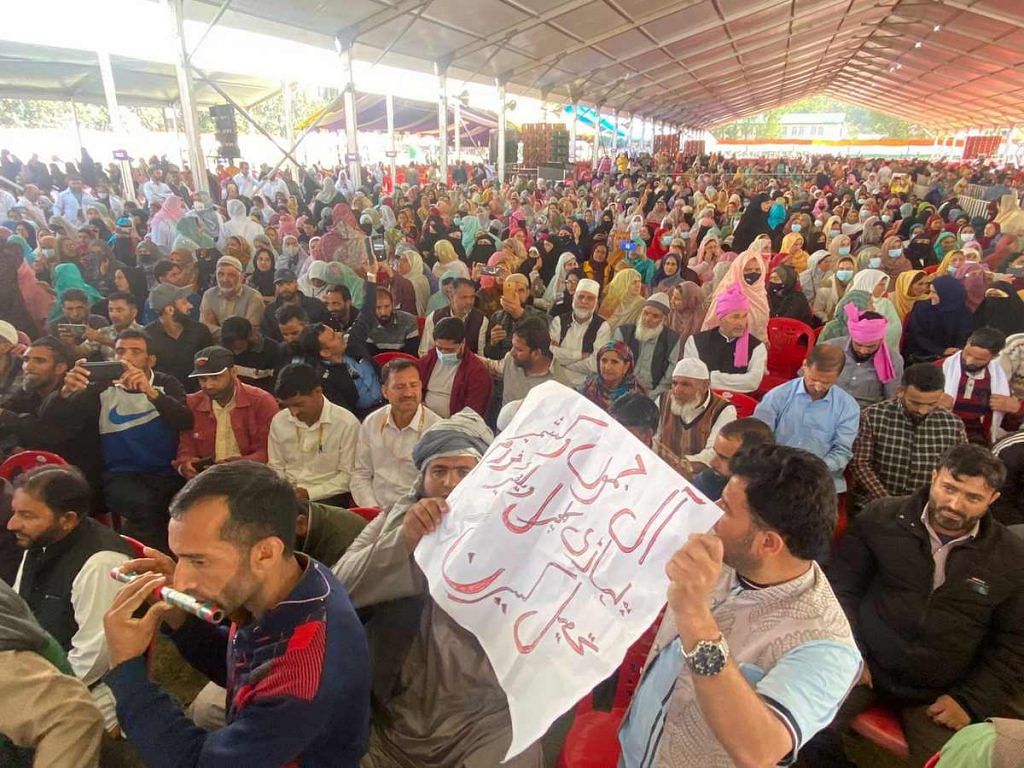
If ST status has to be granted to Paharis, it can only happen through a presidential order after an ordinance is passed by the government.
“We don’t think Mr Shah promised ST status for the Paharis. He just said reservations will be given. Maybe he meant an increased quota in the state services and education institutions. Moreover, he may have said that these reservations were brought in after Article 370 was removed but the truth is that these reservations were very much a part of the earlier Act,” says Hasnai Masoodi, a National Conference leader from Srinagar.
In 2019, after the abrogation of Article 370 in J&K, the Jammu and Kashmir Reservation (Amendment) Bill, 2019, was passed which amended the Jammu and Kashmir Reservation Act, 2004, and provided for reservation in appointment and promotions in state government posts, and admission to professional institutions for certain reserved categories. Professional institutes include government medical colleges, dental colleges, and polytechnics.
The amended reservation rules also included the categorisation of Pahari-speaking people into the “socially and educationally backward classes”.
Earlier, for direct recruitment, the Scheduled Castes had 8 per cent reservation, Scheduled Tribes 10 per cent, weaker and underprivileged classes 2 per cent, residents of areas adjoining Line of Actual Control (LAC) 3 per cent, residents of backward areas 20 per cent, as well as ‘horizontal reservation’ to ex-servicemen and persons with disabilities at 6 per cent and 3 per cent respectively.
However, the government rationalised the percentage of reservation of different categories in direct recruitment in the amendments. The residents of backward areas were given 10 per cent reservation, Pahari-speaking people 4 per cent, and economically weaker sections 10 per cent.
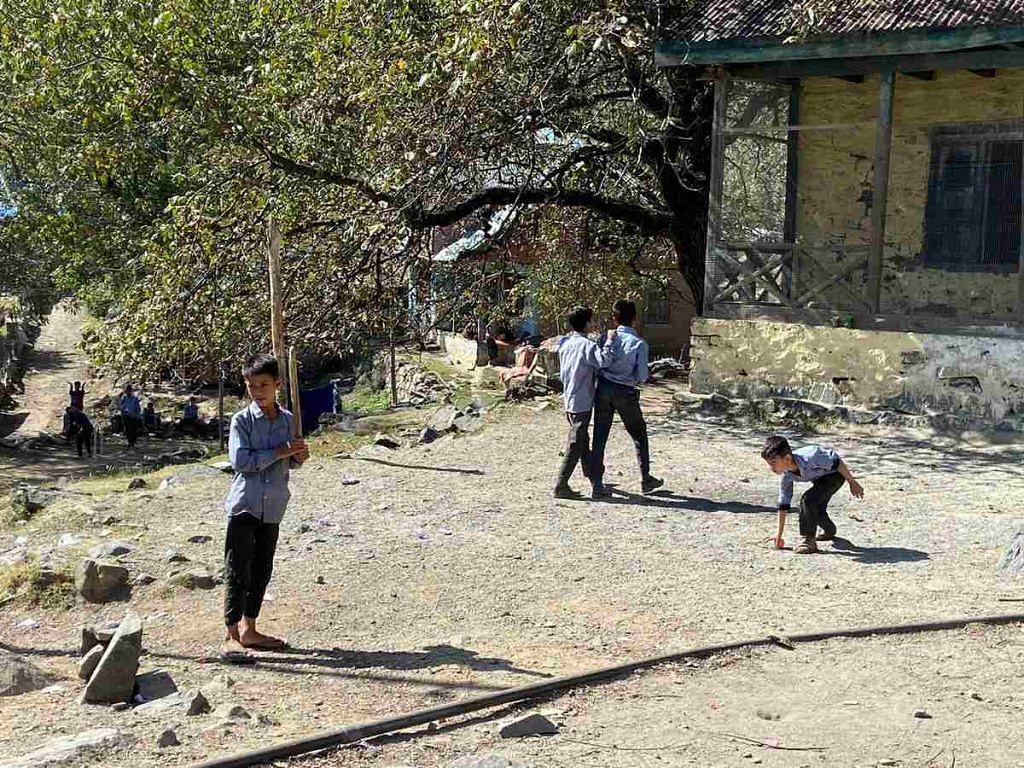
According to local politicians in Kashmir, if ST status is granted to Paharis, the BJP is likely to expand in seven assembly seats in the region.
“This is nothing but a gimmick to garner votes in the seven assembly seats where Paharis have a stronghold,” says Talib Hussain, youth president of the Peoples Democratic Party (PDP) tribal cell.
“How can they put all Paharis who are Rajputs, Brahmins under the ambit of tribals? That is unconstitutional. For a community to be added to the ST list, they have to be socially backward. Earlier they had added 12 communities to this category [in Chhattisgarh] but no one protested. But now if they include Pahari in this, there will be a backlash,” he added.
To Hussain, it is problematic that reservations have been promised to a linguistic group.
“Gujjars and Bakarwals — whether in Punjab, Haryana, Kashmir, or Afghanistan — have common customs, they are one community. Paharis on the other hand have nothing in common besides their language. Since when did language become a criterion for giving reservations?”
Also Read: ‘Tribal leader, RSS links’ — who is Ghulam Ali, first Gurjar Muslim from J&K to be nominated to RS
‘All votes will go to BJP if ST status is granted’
On the ground, Shah’s promise seems to be making an impact.
For the Paharis residing in the Hilan Hakapathri area of Baramulla, closer to Uri, if ST status is granted to them, all of their votes from the region will go to the BJP.
“If the status is granted, all Pahari votes will be given to the BJP. We definitely will support the government that is considering our long-standing demand,” says Mohammad Lateef Khan, the sarpanch of the area, where a mixed population of Paharis along with Gujjars and Bakarwals have been living for generations.
Out of the 2,500 or so votes in the area, about 1,700 are Pahari, Lateef claims.
According to him, the Gujjars and Bakarwals are more “privileged” than the Paharis in Hilan Hakapathri.
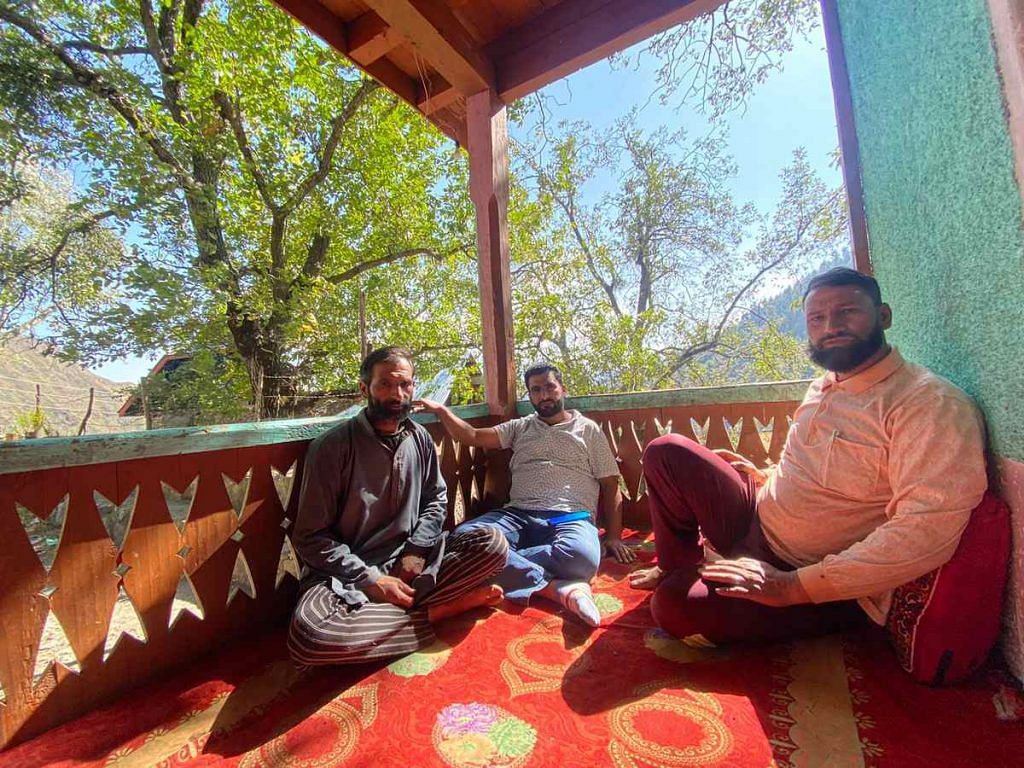
“Here, the Paharis are economically weaker than the Gujjars and Bakarwals, who due to their ST status have got government jobs. Their children clear the UPSC (Union Public Service Commission) exams. It is very difficult for us to compete with them for the central services. While the cut off for their children in these competitive exams is much lower, our children have to compete with the general category,” he claims.
“They have special schools for tribal children, scholarships for children, while we have nothing. We also have the same lack of resources and difficulties as them, but they are more privileged since they have this [ST] status,” Lateef says. “Since we do not fall in any list, we are at a disadvantage.”
Tariq Ahmed Khan, a Pahari from the area who works as a labourer, agrees.
“We know they are doing it for votes, but how does that matter to us till we are the ones benefiting? We all are with Amit Shah if he gives our children the opportunity to apply for jobs in the central government. They will also become IAS, IPS officers,” he says.
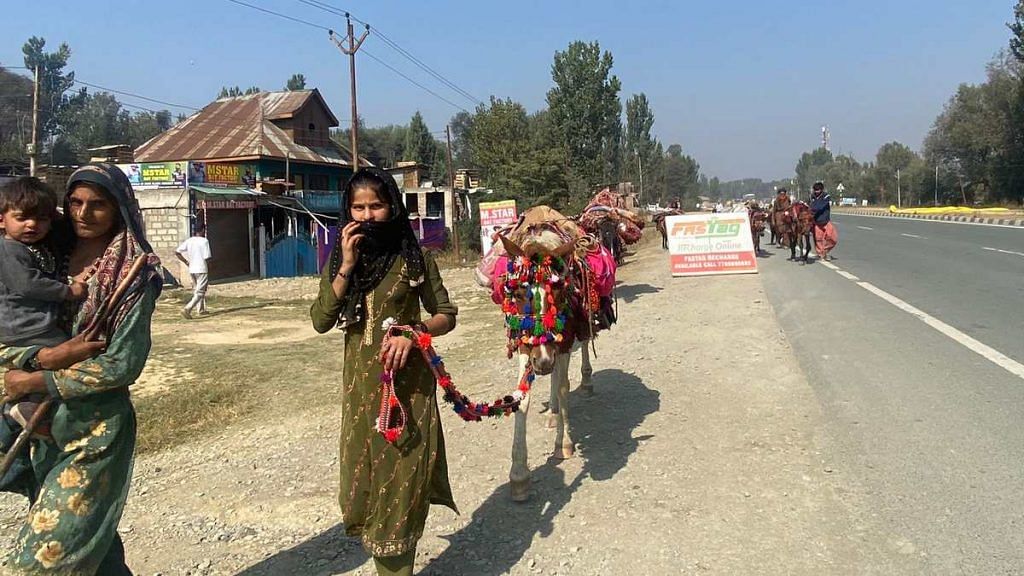
‘Take away our reservation, give us basic dignity’
A large group, including women holding infants, children, and old men, trudge with their horses and sheep on the Jammu-Srinagar National Highway, wending their way from Kashmir to Jammu’s Kishtwar region for the winter. It will take them over a month to reach their destination.
For this nomadic group, reservations hold little value. All they need is medicines for their animals and transport to Jammu.
“We were told about Paharis being given ST status by our leaders, but who cares? We are STs, what are we getting? All our sheep, goats died last month after they got infected by a disease. We begged for help at government animal hospitals but they asked us to go to private hospitals, where they charge Rs 500 to Rs 2,000 for medicine. Do you think we can afford that?” says Kalu Kher, who is on his way to Jammu’s Akhnoor, 340 km away from Kashmir’s Sonamarg, on foot.
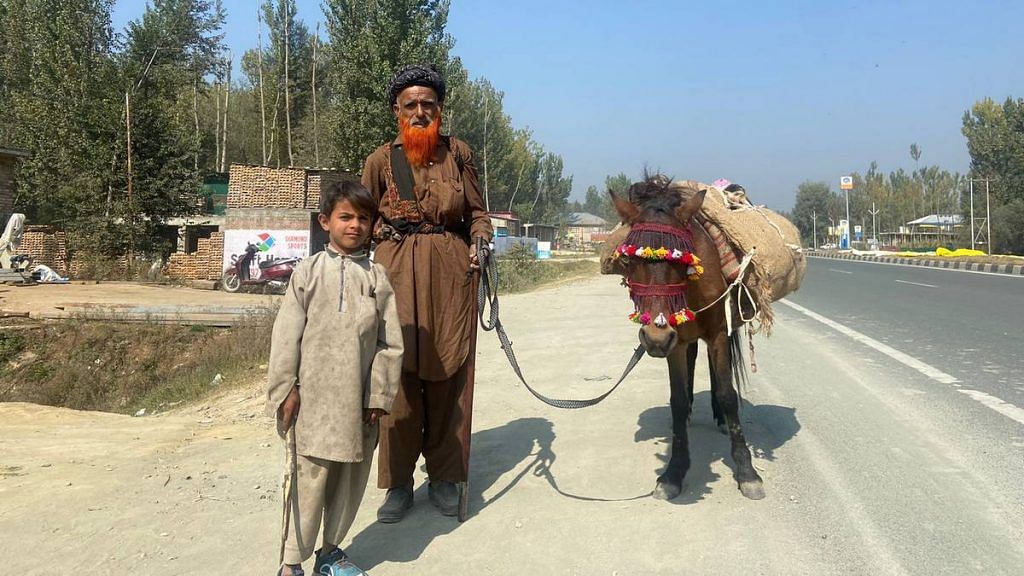
“We have no place to stay. We walk for months, stay on the road at night, with women, children, infants…and they talk about benefits. We become brothers only during elections, when they need votes. Take all our ST benefits, give us basic dignity of life,” he adds.
Mohammad Akhtar, who is on his way to Kishtwar, 291 km away, also on foot, says, “Is asking for a vehicle to transport us all asking for too much? They promised us a truck and we were happy. All the paperwork was done and at the last minute they told us that a vehicle is not available right now. They said they will give it to us on 15 November, after a month. They don’t understand that till then all our animals will die,” he says.
“They use us when they want. When it comes to supporting us, they turn their backs. Now please let me leave, we have a long long way ahead,” he says, before moving on.
(Edited by Asavari Singh)
Also read: Reservations for Kashmir’s Paharis meant to help them but it could start new fires instead


